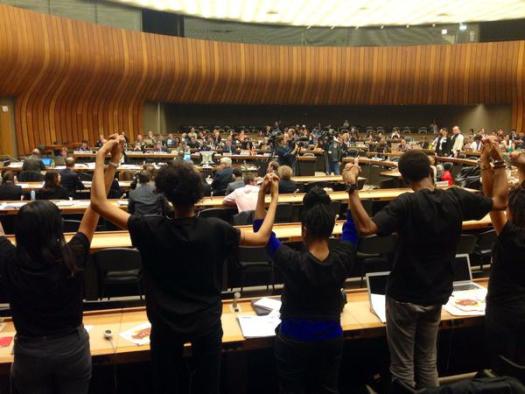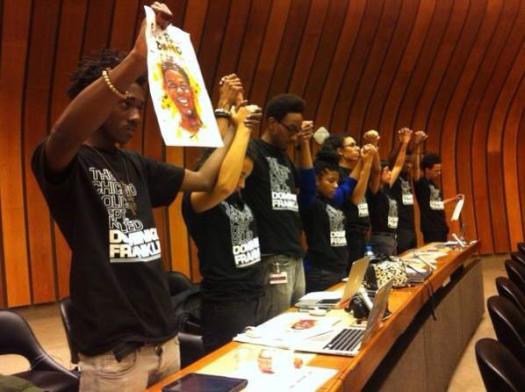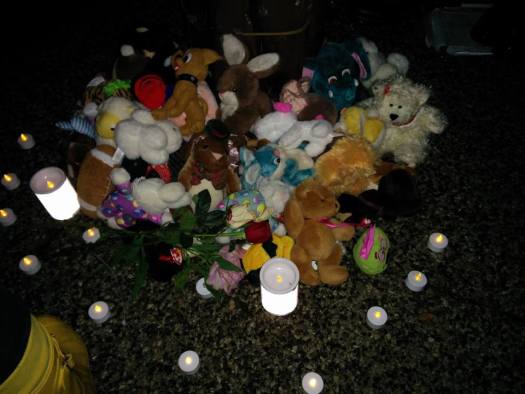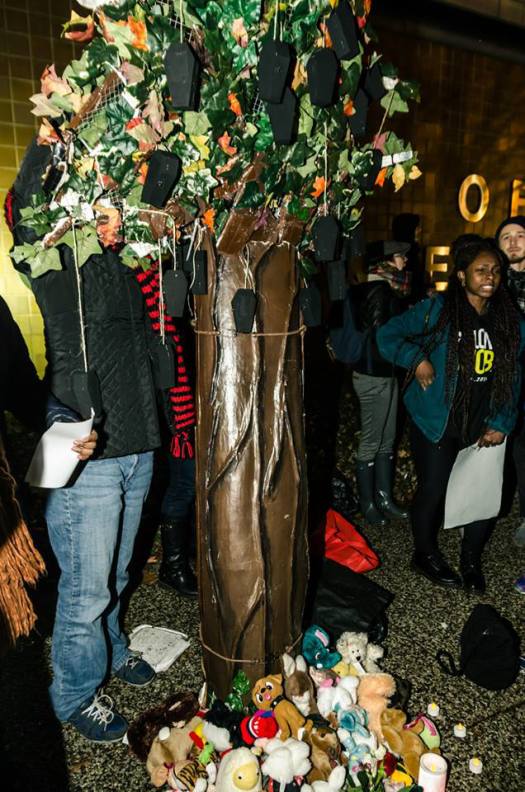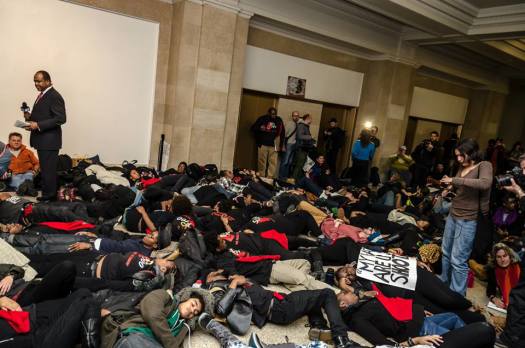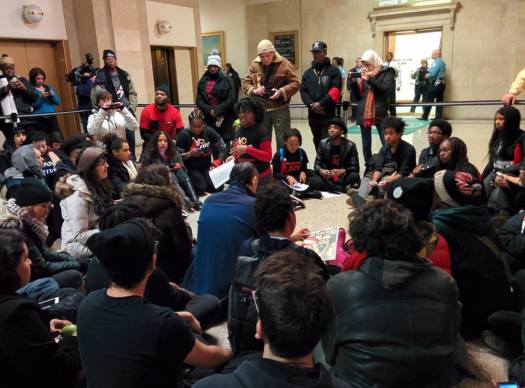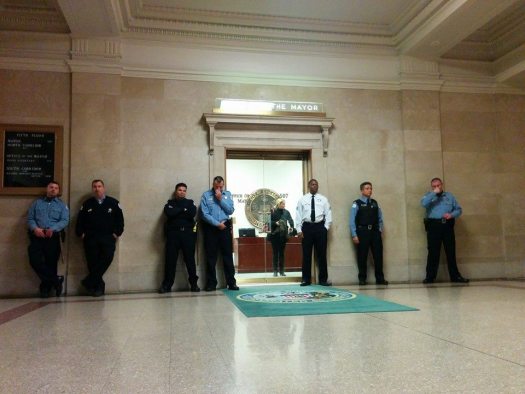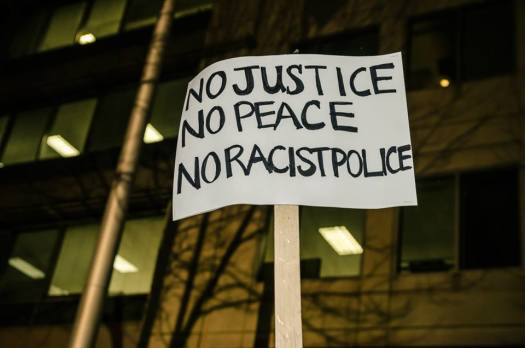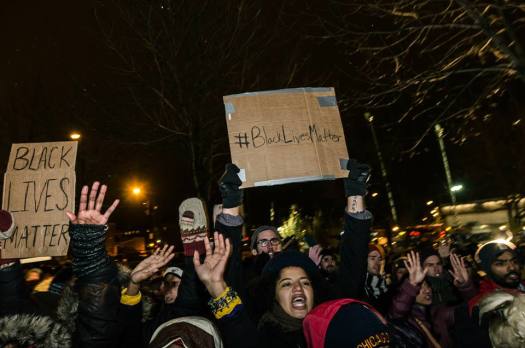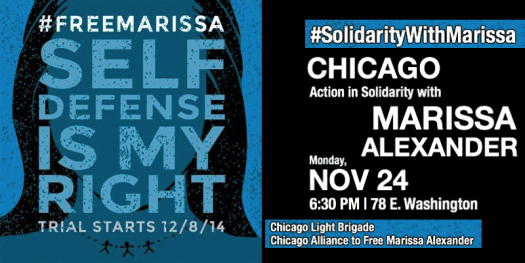“What if she goes to jail again? How will you feel?”
The questions bring me up short. My goddaughter hasn’t previously expressed an interest in Marissa Alexander. She knows that I’ve been involved in a local defense committee to support Marissa in her struggle for freedom. But up to this point, she hasn’t asked any questions. Her mother, however, tells me that Nina (not her real name) has been following my updates on social media.
I’m still considering how to respond and I must have been silent for too long because Nina apologizes. “Forget about it, Auntie,” she says. “I didn’t mean to upset you.”
It’s interesting that she thinks I am upset. She knows that I have no faith in the U.S. criminal legal system and perhaps assumes that I am pessimistic about Marissa’s prospects in court. I tell her that while I have no faith in the criminal punishment system, I am hopeful for a legal victory in Marissa’s case. I say that while the system as a whole is unjust, in some individual cases legal victories can be achieved. I tell her that this is particularly true for defendants who have good legal representation and resources. Money makes a difference in securing legal victories. I explain that this is why I have worked so hard to fundraise for Marissa’s legal defense.
“But how will you feel if she’s convicted again though?” Nina persists.
“I’ll definitely be sad for her and her family,” I respond.
“I think that you’ll be a lot more than sad,” she says.
Does sadness have levels? I guess so. I’m not sure what “more than sad” feels like so I keep quiet.
A friend, who has spent years supporting Marissa Alexander through the Free Marissa NOW National Mobilization Campaign, recently confided that she was unable to contemplate another conviction for Marissa at her retrial in December. Many of us who’ve been supporting Marissa have been bracing ourselves. Each of us trying to cope as best we can. Over the past few weeks, I’d taken to asking comrades if they believed that Marissa would be free. Some answered affirmatively without hesitation but they were in the minority. Most eyed me warily and slowly said that they were hopeful of an acquittal. I don’t think that they believed what they were saying.
The U.S. criminal punishment system cannot deliver any “justice.” Marissa has already served over 1000 days in jail and prison. She spent another year under strict house arrest wearing an ankle monitor costing her family $105 every two weeks. Marissa fired a warning shot to ward off her abusive husband and no one was injured. For this, she was facing a 60 year sentence if convicted in her re-trial. True justice is not being arrested and taken away from her children, family and friends. Justice is living a life free of domestic abuse. Justice is benefiting from state protection rather than suffering from state violence. Justice is having a self to defend in the first place.
Yesterday morning, I got news that Marissa had agreed to a plea deal. A couple of hours later, the news broke on social media. I saw a mix of people celebrating this outcome and others expressing their anger that Marissa was forced into a Faustian ‘choice’. I got calls, texts and emails from friends and family checking in on me. I appreciated everyone’s concern but I was unfortunately thrust into action when I heard that the grand jury in St. Louis would be announcing their indictment decision in the killing of Mike Brown later in the day. It was a mad rush to make arrangements to combine solidarity events since we already had one planned for Marissa yesterday evening.
The parallels between Marissa’s unjust prosecution/imprisonment & Mike Brown’s killing by law enforcement are evident to me. Yet, I am well aware that for too many these are treated as distinct and separate occurrences. They are not. In fact, the logic of anti-blackness and punishment connects both.
In the late 19th century, a remark was attributed to a Southern police chief who suggested that there were three types of homicides: “If a nigger kills a white man, that’s murder. If a white man kills a nigger, that’s justifiable homicide. If a nigger kills a nigger, that’s one less nigger (Berg, 2011, p.116).” The devaluing of black life in this country has its roots in colonial America. In the book “Popular Justice: A History of Lynching in America,” Manfred Berg makes a convincing case that: “The slave codes singled out blacks for extremely cruel punishment, thus marking black bodies as innately inferior (p.11).” Berg argues that: “Colonial slavery set clear patterns for future racial violence in America (p.11).”
“Innately inferior” bodies can be debased, punished and killed without consequence. The twist is that black people have always been considered dangerous along with our disposability. Mike Brown’s (disposable) body is a lethal weapon and so he is justifiably threatening. Marissa’s (disposable) body is deserving of abuse and is incapable of claiming a self worth defending. Mike Brown was described by his killer, Darren Wilson, as a “demon” and called an “It.”
The doctrine of pre-emptive killing and preventative captivity finds expression in the daily lives of all black people in the U.S. Black people are never ‘innocent.’ That language or concept doesn’t apply. We are always guilty until proven something less than suspect or dangerous.
Read more »
